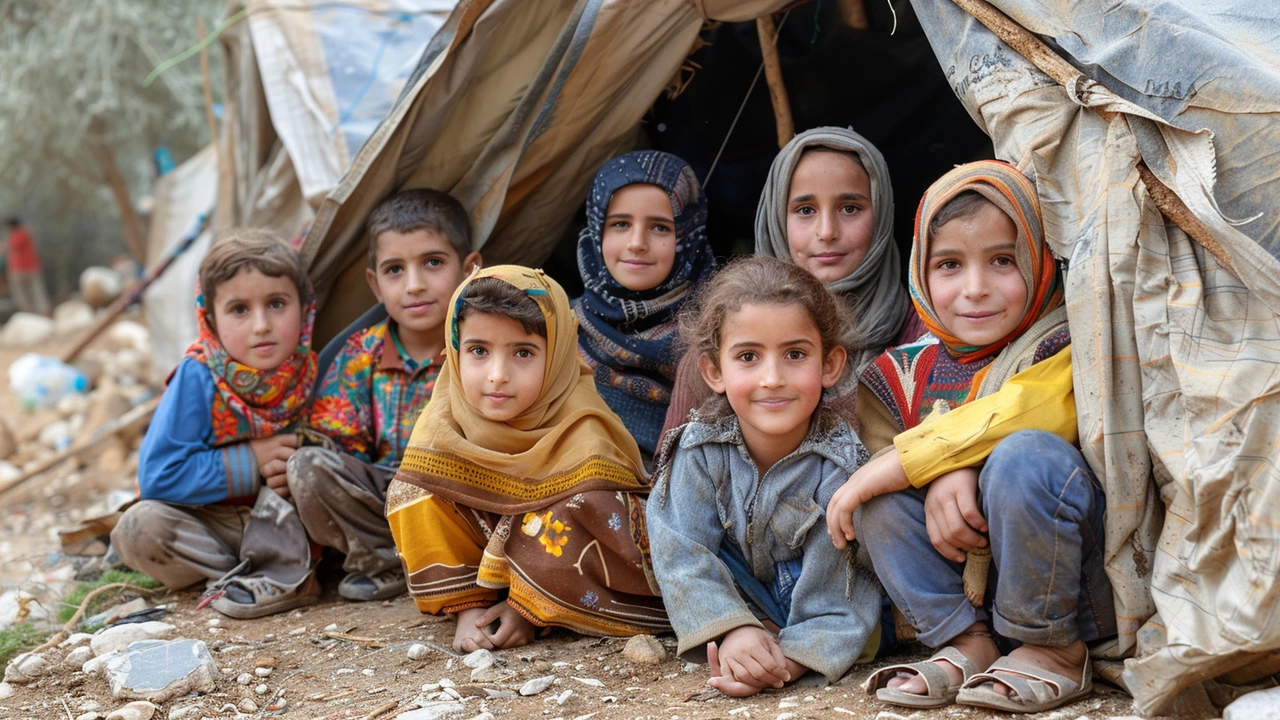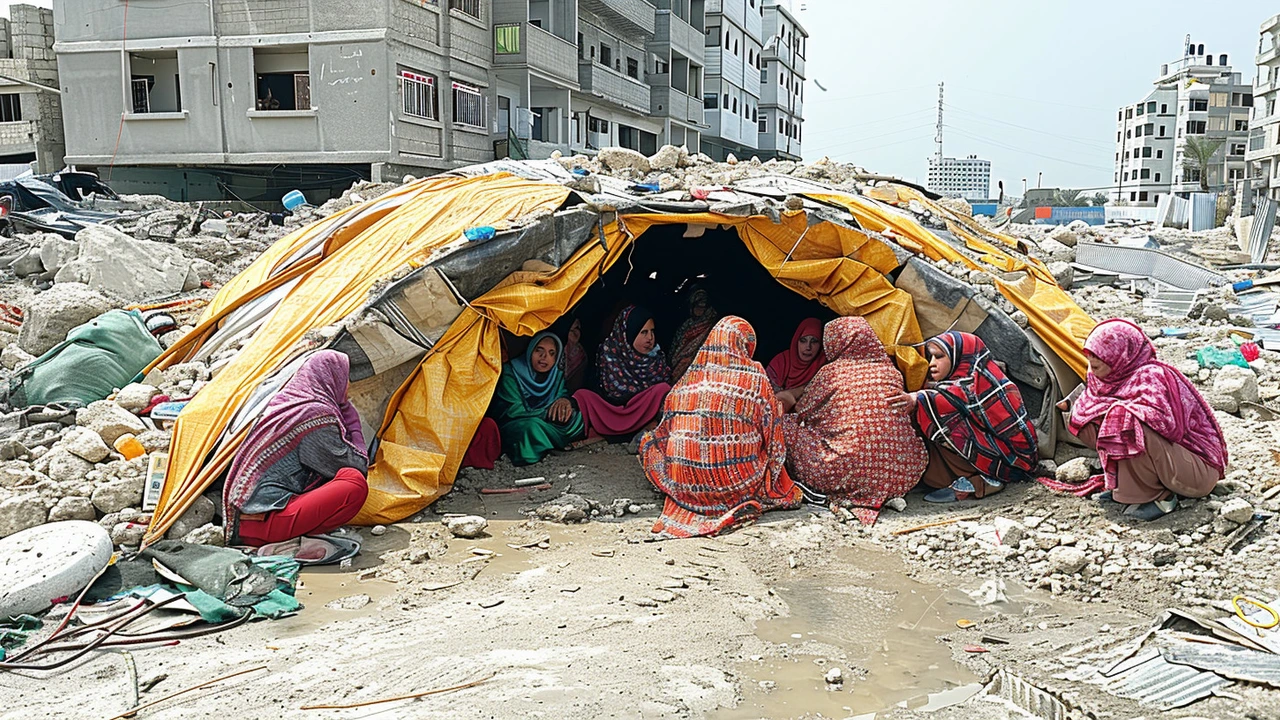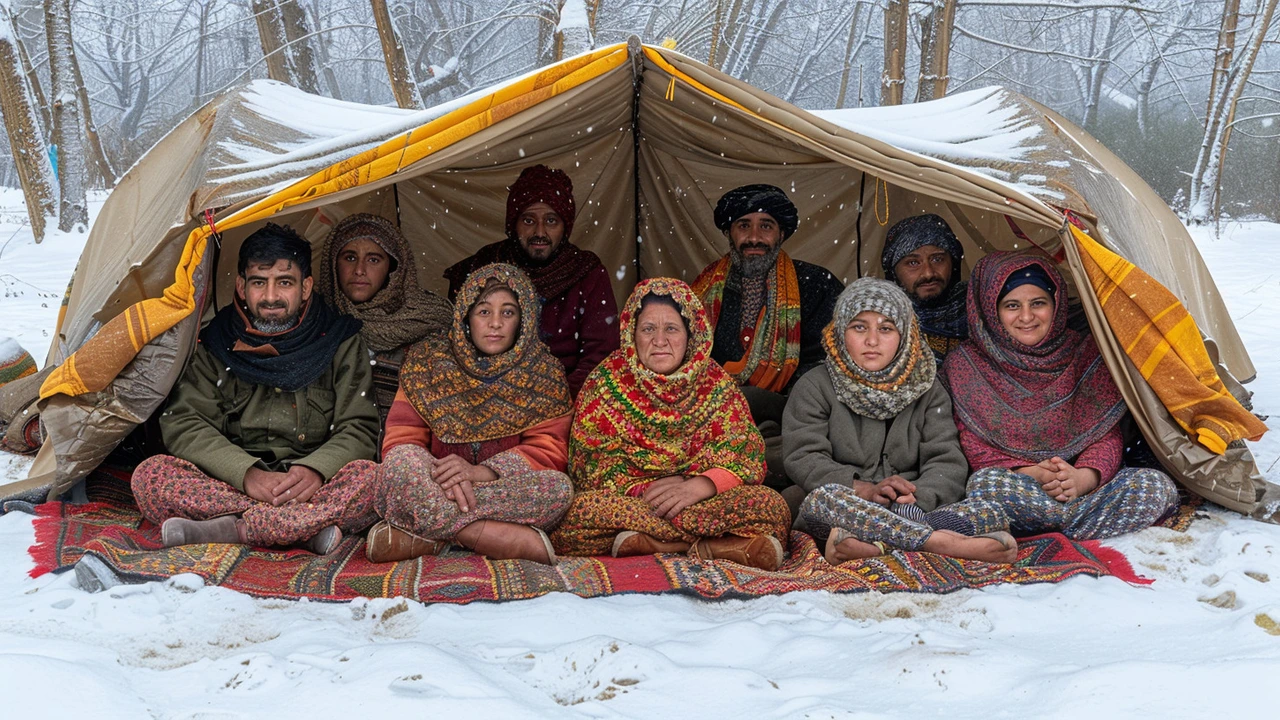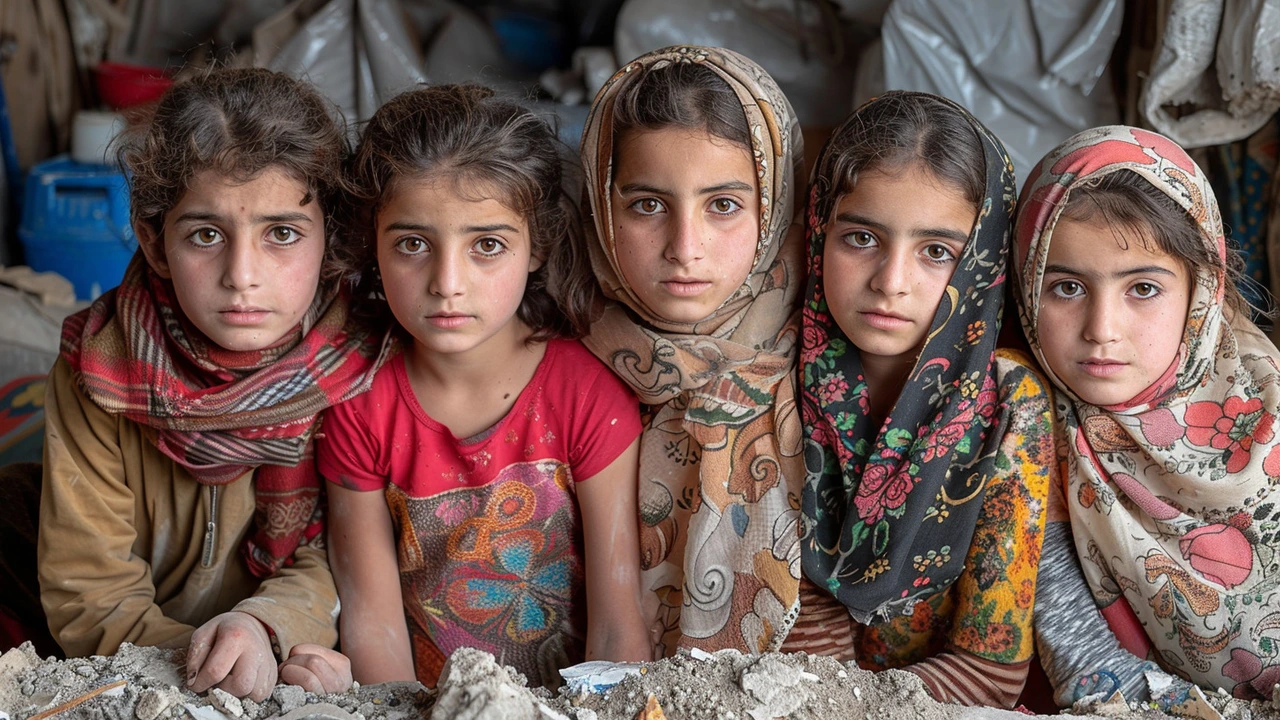Israel's Continued Airstrikes in Rafah Amid Global Pleas for Ceasefire
In Rafah, Gaza, the echoes of airstrikes resonate persistently despite growing demands from the international community for a ceasefire. The recent surge in violence has resulted in significant casualties and widespread displacement. At the heart of the devastation lies the tragic airstrike on a makeshift camp of internally displaced people, resulting in at least 45 fatalities. The dead included women, children, and older adults, painting a grim portrait of the human cost of the ongoing conflict.

Humanitarian Crisis Unfolds
The United Nations Office for the Coordination of Humanitarian Affairs (OCHA) released harrowing footage of the aftermath, showing injured individuals receiving urgent treatment at Rafah's International Medical Corps (IMC) field hospital. The stark images convey the palpable sense of loss and desperation among the survivors. Medical Director Javed Ali of IMC shared heart-wrenching accounts, including that of a father and his three-year-old child, their bodies burned beyond recognition. Such stories underscore the inhumanity of war and its indiscriminate nature, sparing neither the innocent nor the vulnerable.
Casualties and Displacement
The detonation at the makeshift camp signifies a tipping point in the escalating violence. Reports from the Gaza Health Ministry and the Palestinian Red Crescent rescue service confirm the attack's deadly toll. The city of Rafah, which once provided refuge to over a million displaced individuals, is now a landscape of ruins. Since Israel's limited incursion began earlier this month, hundreds of thousands have fled, seeking shelter wherever they can find it. These displaced families now reside in squalid tent camps, grappling with dire living conditions and little hope for immediate respite.
Official Reactions
Israeli Prime Minister Benjamin Netanyahu responded to the incident by labelling it a 'tragic mistake,' though he refrained from elaborating on the nature of the error. His statement, however, did little to soothe the mounting rage and sorrow felt by those affected. It also failed to address the broader international critique of Israel's military actions. The calls for accountability grow louder, with many urging Israel to reassess its tactics and consider the profound humanitarian impact of its operations.

International Calls for Ceasefire
Voices from around the globe have united in calling for an immediate halt to the hostilities. The United Nations, alongside various nations such as South Africa, has explicitly urged Israel to cease its offensive actions in Gaza. They argue that continued assaults contravene international humanitarian laws and inflict unnecessary suffering on civilians. The International Criminal Court has also weighed in, recommending an end to the military actions to prevent further violations of human rights.
Political Implications
International diplomatic circles are abuzz with discussions on how to navigate the crisis. The consistent appeals for ceasefire reflect the global sentiment against prolonged conflict, particularly one that predominantly affects civilians. The resolution of the Israeli-Palestinian conflict seems as distant as ever, with recent events only exacerbating animosities and mistrust between the parties involved. The international community faces the formidable task of mediating peace efforts while addressing humanitarian concerns.
A Struggle for Normalcy
For the residents of Rafah, the quest for normalcy remains an elusive dream. Daily life is punctuated by air raids and the looming threat of further violence. Schools have been reduced to rubble, healthcare facilities are overwhelmed, and basic amenities are scarce. Families torn apart by displacement and death look to the future with uncertainty. Efforts by local and international aid organizations to provide relief are ongoing, yet the scale of the need far exceeds the available resources.

Conclusion
Amid the chaos, the people of Rafah persist in their struggle for survival. The story of Rafah is a somber reminder of the tragic human cost of conflict. It calls for a renewed commitment from the global community to advocate for peace, uphold humanitarian laws, and provide support to those most affected. While the geopolitical landscape presents numerous challenges, the plight of the innocent civilians in Rafah and beyond calls for urgent and compassionate action.


Author
Ra'eesa Moosa
I am a journalist with a keen interest in covering the intricate details of daily events across Africa. My work focuses on delivering accurate and insightful news reports. Each day, I strive to bring light to the stories that shape our continent's narrative. My passion for digging deeper into issues helps in crafting stories that not only inform but also provoke thought.